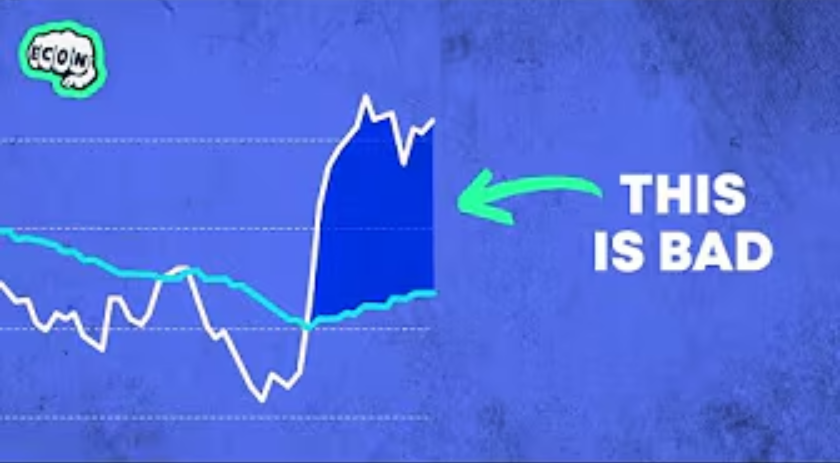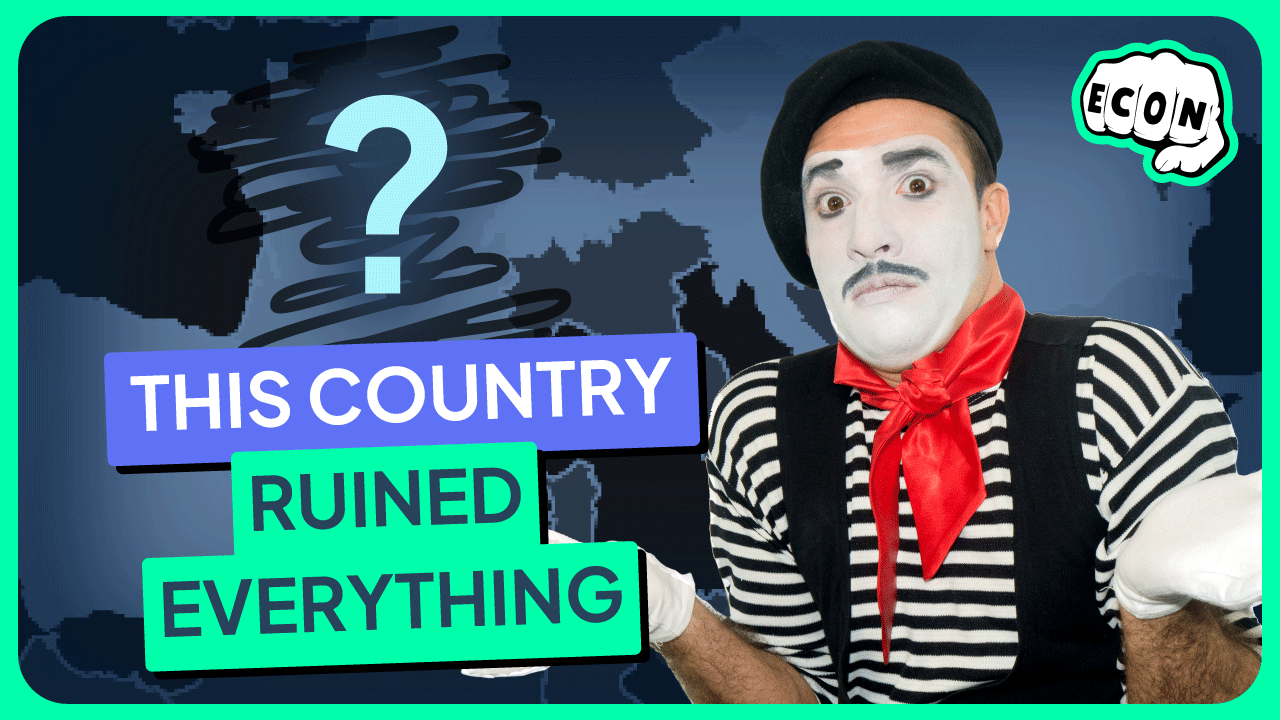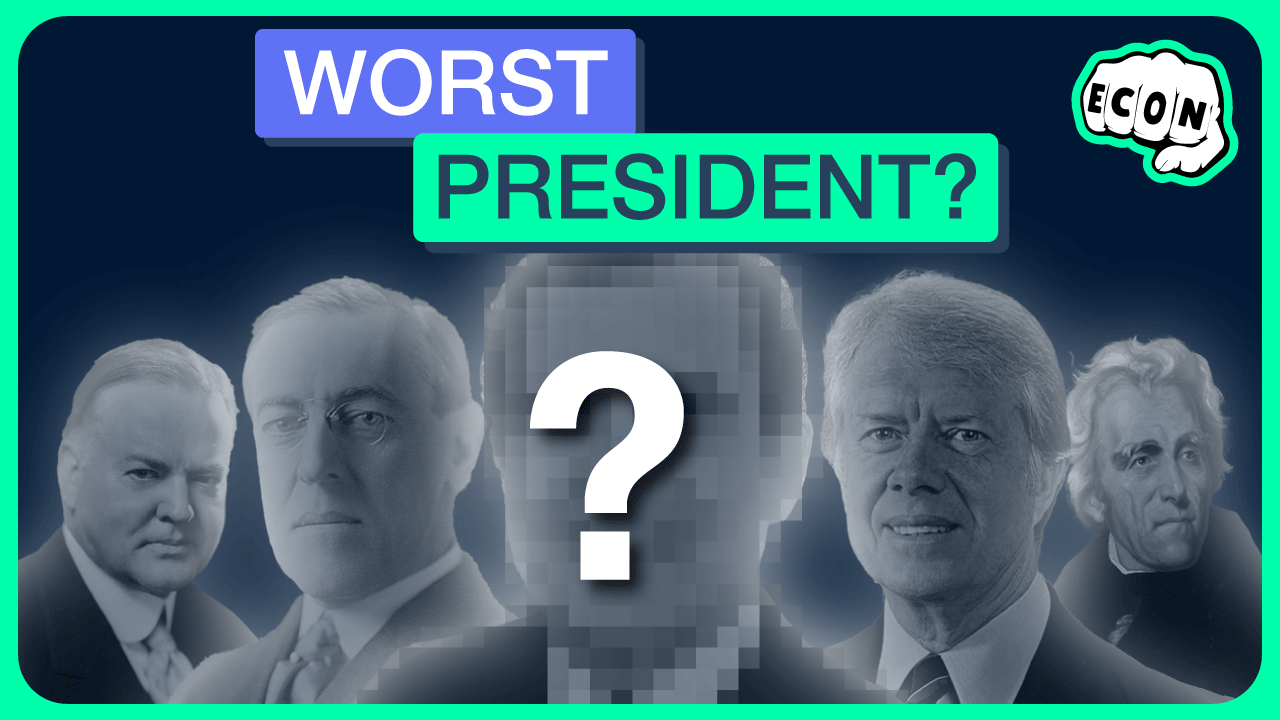
EconNerds: Why is the Housing Market Frozen?
Client: Econ Nerds
Why does the U.S. housing market feel broken? Interest rates are high, transaction volume is low, and everyone is worried about affordability.
The vibes aren’t wrong: home sales have collapsed while prices stay stubbornly high. How can a market be terrible for both buyers and sellers at the same time? In this episode of Econ Nerds, we walk through the real economic forces behind the “locked-in” housing market—using Matt’s own (possibly demon-possessed) house as a case study.

EconNerds: The Real Culprit Behind the Great Depression
Client: Econ Nerds
What really caused the worst economic catastrophe of the 20th century? One country’s monetary policy deserves a large share of the blame. In this episode of Econ Nerds, we break down how the return to the gold standard after World War I helped set the stage for the Great Depression—and how one nation’s monetary policy decisions pushed the entire world into deflation, economic collapse, and social turmoil.

EconNerds: The 70 Year Old Economic Theory That Predicted Europe’s Populist Wave
Client: Econ Nerds
Populist parties are reshaping European politics, and some elites chalk that up to voters being misinformed or bigoted. But a simple model based on Econ 101—the median voter theorem—might explain far more.
In this episode, we revisit Hotelling’s Law (why ice cream vendors cluster in the middle of the beach) and see how it applies to political competition. Economist Laurenz Guenther’s research shows Europe’s politicians are out of step with the public, especially on immigration—and that gap is reshaping democracy.

EconNerds: The Bombshell Theory that Explains Love Island
Client: Econ Nerds
In this episode of Econ Nerds, economist Jadrian Wooten dives into the drama of coupling up, recoupling, and bombshells to reveal how it all connects to a famous puzzle in economics: the stable marriage problem.

EconNerds: Top 5 Product Placements
Client: Econ Nerds
In this episode of Econ Nerds, we’re ranking the greatest product placements of all time and estimating just how much money they were actually worth. We also discuss:
How product placement shifts the demand curve
Why some placements fail while others make history
What brands and marketers can (and can’t) learn from the best examples

EconNerds: Who’s the Worst President Ever? (According to Economics)
Client: Econ Nerds
In this episode of Econ Nerds, we build a presidential bracket based only on economics. From Andrew Jackson’s war on the Second Bank of the United States to Hoover’s disastrous Depression-era policies to Nixon’s price controls, we put history’s most questionable economic decisions head-to-head.

Publius: Robert Bork’s Influence on Antitrust
CLIENT: Publius
Thanks to the work of Robert Bork, legislators and judges began to analyze the impact of antitrust regulations through cost-benefit analysis rather arbitrary deference to the government.

Kite&Key: When Politicians Raise Prices on Purpose
CLIENT: Kite & Key Media
How has such a bad policy endured? Because it’s also been very good for people who grow corn … who’ve made it their business to keep that policy in place. Economists call this the problem of “dispersed costs and concentrated benefits.” And once you’re aware of it, you start seeing it everywhere.

Publius: Exploring Plato’s “The Laws”
CLIENT: Publius
Plato's final and most extensive dialogue, the Laws, laid the groundwork for modern legal philosophy.

Kite&Key: The Most Important Economic Concept No One Understands
CLIENT: Kite & Key Media
As industries become more productive, their goods and services often become cheaper. That tends to increase the demand for them, which leads to the creation of more jobs. And as companies become more successful, they often create new and different jobs as well.

Publius: The Anti-Federalist Papers
CLIENT: Publius
The Anti-Federalist Papers were a series of articles and speeches opposing the ratification of the U.S. Constitution. These writings, penned by various authors including Patrick Henry and George Clinton, expressed concerns about the concentration of power in a strong federal government and the potential for tyranny.

Publius: Is the Third Amendment Pointless in the Modern World?
CLIENT: Publius
The Third Amendment, which prohibits quartering soldiers in private homes without owner consent, is the least litigated amendment in the Bill of Rights.

SphereEd: Price Controls
CLIENT: SphereEd
Economist Ryan Bourne explores the implications of price controls as well as their recent implementations.

SphereEd: Three Theories of Regulation
CLIENT: SphereEd
Economist Ryan Bourne explores three theories for how a bill becomes public policy.

Publius: The Founders and the Question of Representative Government
CLIENT: Publius
What does it mean for a government to be truly representative? Professor Keith Whittington discusses the Founders' experience with Parliament, which claimed to represent the interests of the colonists.

SphereEd: The National Debt and its Implications
CLIENT: SphereEd
Economist Ryan Bourne explores the national debt and its implications for the American economy.

SphereEd: Market Failures vs Government Failures
CLIENT: SphereEd
Economist Ryan Bourne explores the concept of market failure and government failure.

SphereEd: Comparative Advantage and the Benefits of Trade
CLIENT: SphereEd
Economist Ryan Bourne explores the oft-misunderstood concept of Comparative Advantage and how it helps us understand how everyone can benefit from trade.

LearnLiberty: The Truth About Immigration
Economic writer Daniel DiMartino hosts this three-part explainer series that explores the impacts of immigration on the US and dispels many myths and incorrect notions surrounding the issue.

PLF: Anastasia Explains Everything
Anastasia Boden is a civil rights attorney at the Pacific Legal Foundation where she focuses on economic opportunity and equality before the law and she hosts this episodic series exploring heard-of, but not well-understood concepts of law and government policy.
